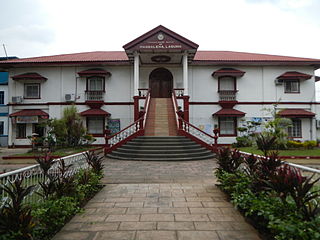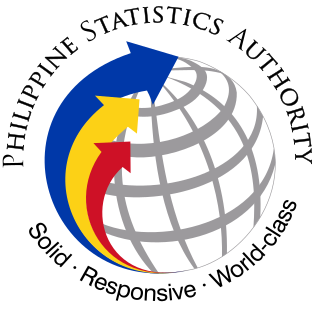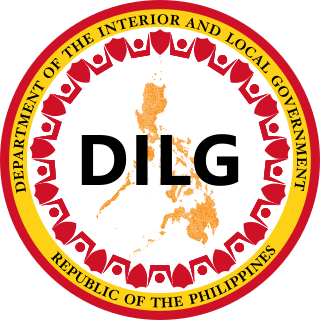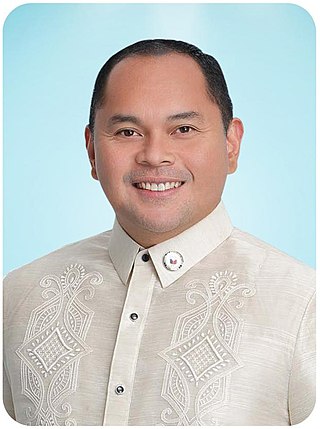Related Research Articles

In the Philippines, regions are administrative divisions that primarily serve to coordinate planning and organize national government services across multiple local government units (LGUs). Most national government offices provide services through their regional branches instead of having direct provincial or city offices. Regional offices are usually but not necessarily located in the city designated as the regional center.

Magdalena, officially the Municipality of Magdalena, is a 4th class municipality in the province of Laguna, Philippines. According to the 2020 census, it has a population of 27,816 people.

Pualas, officially the Municipality of Pualas, is a 5th class municipality in the province of Lanao del Sur, Philippines. According to the 2020 census, it has a population of 14,526 people.

Oroquieta,(formerly/originally known as Layawan), officially the City of Oroquieta, is a 4th class component city and capital of the province of Misamis Occidental, Philippines. According to the 2020 census, it has a population of 72,301 people.

San Andres, officially the Municipality of San Andres, is a 4th class municipality in the province of Quezon, Philippines. According to the 2020 census, it has a population of 37,454 people.

The Philippine Statistics Authority is the central statistical authority of the Philippine government that collects, compiles, analyzes and publishes statistical information on economic, social, demographic, political affairs and general affairs of the people of the Philippines and enforces the civil registration functions in the country.
The Philippines is divided into four levels of administrative divisions, with the lower three being defined in the Local Government Code of 1991 as local government units (LGUs). They are, from the highest to the lowest:
- Regions are mostly used to organize national services. Of the 17 regions, only one—the Bangsamoro Autonomous Region in Muslim Mindanao—has an elected government to which the central government has devolved competencies.
- Provinces, independent cities, and one independent municipality (Pateros)
- Component cities and municipalities within a province
- Barangays within a city or municipality

The Department of the Interior and Local Government, abbreviated as DILG, is the executive department of the Philippine government responsible for promoting peace and order, ensuring public safety and strengthening local government capability aimed towards the effective delivery of basic services to the citizenry.
The Philippines' water supply system dates back to 1946, after the country declared independence. Government agencies, local institutions, non-government organizations, and other corporations are primarily in charge of the operation and administration of water supply and sanitation in the country.
Erico Boyles Aumentado was a former governor, vice governor, and senior provincial board member of Bohol, and congressman and deputy speaker of the Philippine House of Representatives. He is the first governor of Bohol who served for three consecutive terms (2001-2010).
In the Philippines, local government is divided into three levels: provinces and independent cities, component cities and municipalities, and barangays, all of which are collectively known as local government units (LGUs). In some areas, above provinces and independent chartered cities are autonomous regions, such as the Bangsamoro Autonomous Region in Muslim Mindanao. Some towns and cities remit their revenue to national government and is returned through the national government through a process called internal revenue allotment. Below barangays in some cities and municipalities are sitios and puroks. All of these, with the exception of sitios and puroks, elect their own executives and legislatures. Sitios and puroks are often but not necessarily led by an elected barangay councilor.

Benjamin "Benhur" de Castro Abalos Jr. is a Filipino lawyer, politician, and broadcaster serving as Secretary of the Interior and Local Government since 2022. Before his appointment as DILG secretary, he last served as the Chairman of the Metropolitan Manila Development Authority (MMDA) under the Duterte administration from 2021 to 2022. Previously, he served as the five-term city mayor, as congressman and as councilor of Mandaluyong, Metro Manila. He is the son of Benjamin Abalos, a former Commission on Elections (COMELEC) and MMDA chairman.

Rene Lopez Relampagos is a Filipino politician. He is a former vice-governor of the Province of Bohol after having been elected in the local elections as part of the 2019 Philippine General Election and ending his term on June 30, 2022. He has also served three terms as a member of the House of Representatives of the Philippines representing the 1st congressional district of the Province of Bohol.

Gwendolyn Buray Ecleo-Pols is a Filipino politician and Mayor of Dinagat, Dinagat Islands, Philippines, since May 2004 until 2013. She also serves in various capacities as an official of the Philippine Benevolent Missionaries Association, Incorporated, widely considered a cult based on its practices.
Jose "Joey" David Lina Jr., KGCR is a Filipino lawyer, politician, businessman, public servant, and radio personality who is the former governor of Laguna and former Senator of the Philippines. The youngest Senator during his time at the age of 35. He was the author of the "Lina Law" or Republic Act No. 7279. He is currently the President of Manila Hotel.

Arturo J. Angara, otherwise known as Arthur Angara or AJA, was a Filipino politician, dentist, and national awardee for public service. He was the former national deputy secretary-general of and former national adviser for the League of Municipalities of the Philippines (LMP). He was the longest-serving mayor of the municipality of Baler in the Philippine province of Aurora, with his terms of office covering a period of 18 years.

David Catarina Suarez is a Filipino politician. He is the incumbent Representative of the 2nd District of Quezon in the House of Representatives of the Philippines. He previously served as governor of Quezon from 2010 to 2019, vice governor of Quezon from 2004 to 2007, and councilor of Unisan from 2001 to 2004.

Ramil Laurel Hernandez is a Filipino politician from Calamba, Laguna. He currently serves as the Governor of Laguna since 2014. He previously served as Sanguniang Kabataan Chairman of Barangay Mabato in Calamba, Laguna, a councilor of Calamba, a board member, and Vice Governor of Laguna. He was elevated to Governor following the disqualification of E.R. Ejercito in 2014. He was first elected as Governor in 2016 and was re-elected in 2019 and 2022.
StaySafe.ph or Stay Safe is a digital contact tracing app launched by the Philippine government as a response to the COVID-19 pandemic in the Philippines. The mobile app was developed and published by MultiSys Technologies Corporation.
Andres "Andy" David Lacson is a Filipino politician. He was a mayor of Concepcion, Tarlac and Vice Chairman of Aksyon Demokratiko.
References
- 1 2 "Executive Order No. 351, s. 2004 | GOVPH". Official Gazette of the Republic of the Philippines. Retrieved 2016-12-21.
- ↑ "DILG: Department of the Interior and Local Government - Kagawaran ng Interyor at Pamahalaang Lokal". www.dilg.gov.ph. Retrieved 2016-12-21.
- ↑ "AMENDMENT TO DILG MC NO. 99-06 DTD JANUARY 7, 1999, ENTITLED, ULAP ANNUAL MEMBERSHIP DUES - Issuances - DILG". www.dilg.gov.ph. Retrieved 2016-12-21.
- ↑ "League of Provinces of the Philippines". League of Provinces of the Philippines. Retrieved 2016-12-21.
- ↑ "League of Cities of the Philippines". www.lcp.org.ph. Retrieved 2016-12-21.
- ↑ "League of Municipalities of the Philippines". www.lmp-online.org. Retrieved 2016-12-21.
- ↑ "National Executive Board Officers". www.ulap.net.ph. Retrieved 2022-04-01.